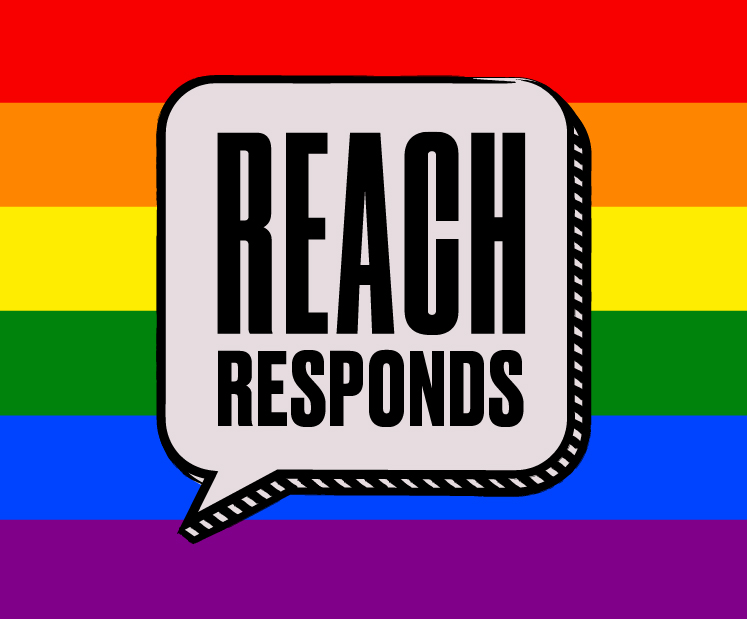
Reach responds: LGBTIQ COMMUNITY
April 2019
Our work
Reach has been in operation for 25 years and has delivered workshops to thousands of young people every year since 1996. Reach delivers youth led workshops to young people across Australia in schools and the community. Our work is 100% designed by young people to enable others to discover their identity and make sense of experiences so they can build resilience and confidence in their capacity to reach their potential. In all these workshops we break down barriers and give young people tools and skills to understand themselves and others. Reach aims to provide a safe and positive environment for young people to explore their thoughts and feelings and build acceptance of difference for all participants.
The issue
Young people who do not identify as heterosexual often experience prejudice, discrimination and are frequently marginalised or excluded from mainstream descriptors, opportunities and lack a sense of belonging. This continues to lead to serious consequences for their wellbeing, mental health, peer and family relationships and personal safety. In particular:
- A large number of LGBTI people hide their sexuality or gender identity when accessing services (34 per cent), at social and community events (42 per cent) and at work (39 per cent).[1] Young people aged 16 to 24 years are most likely to hide their sexuality or gender identity.[2]
- LGBTI young people report experiencing verbal homophobic abuse (61 per cent), physical homophobic abuse (18 per cent) and other types of homophobia (9 per cent), including cyberbullying, graffiti, social exclusion and humiliation.[3]
- 80 per cent of homophobic bullying involving LGBTI young people occurs at school and has a profound impact on their well-being and education.[4]
- Gay, lesbian, bisexual and transgender people are three times more likely to experience depression compared to the broader population.[5]
- Around 61 per cent of same-sex attracted and gender-questioning young people said they experienced verbal abuse because of their sexuality, while 18 per cent reported experiencing physical abuse. Young men (70 per cent) and gender-questioning young people (66 per cent) were more likely than young women (53 per cent) to experience verbal abuse.[13]
Our position
Equality and freedom from discrimination are fundamental human rights that belong to all people, regardless of sexual orientation, gender identity or because they are intersex. We strive to ensure that young people can safely explore their sexuality and gender identity should they choose to in Reach workshops at school and in the community. We will actively promote inclusion and acceptance of those who identify as LGBTIQ.
We will not support or align Reach with organisations or individuals who foster discrimination against people who identify as LGBTIQ.